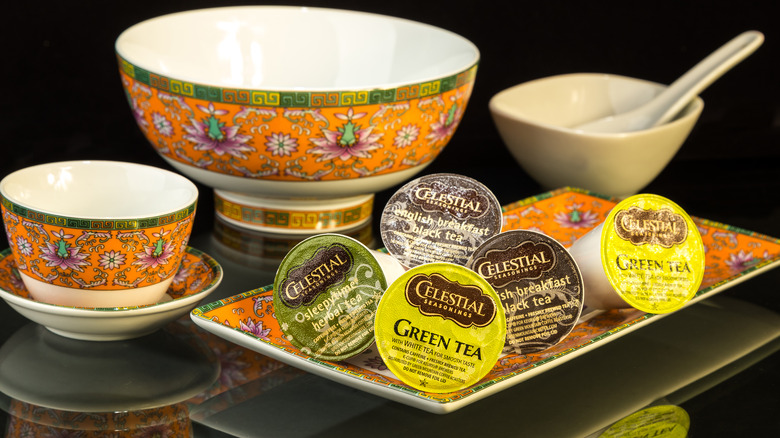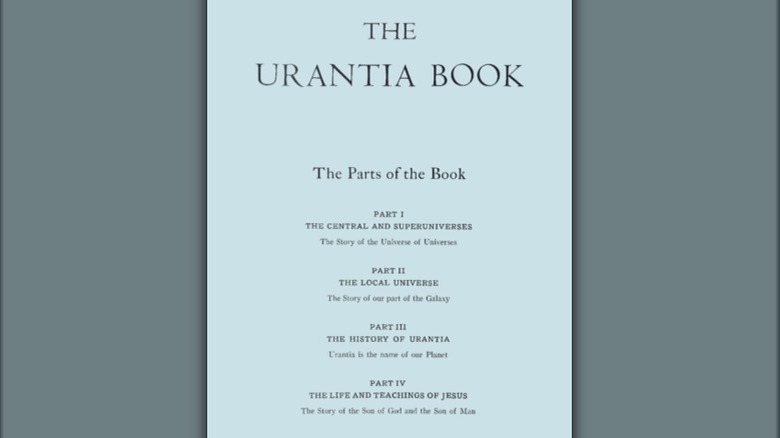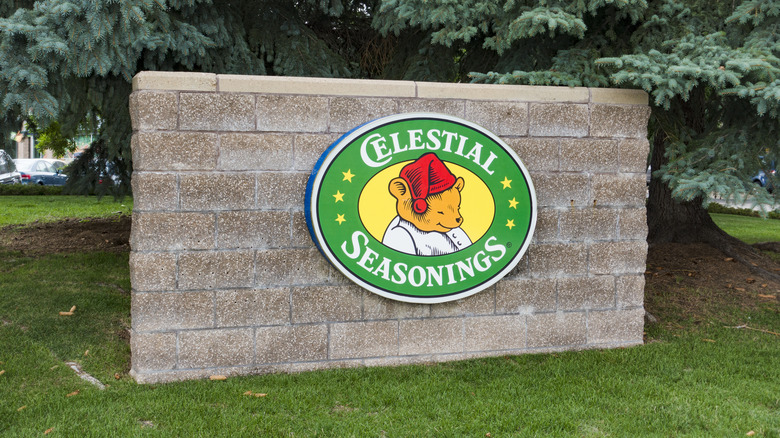The Distressing Tie Between Celestial Seasonings Tea And Eugenics
There's a good chance you've had a cup of Celestial Seasonings tea before, given that it's one of the largest tea makers in North America (via Zippia). It is best known for its signature Sleepytime tea, instantly recognizable by the image of an adorable dozing bear on the box. This herbal tea is characterized by spearmint and chamomile, and it's been a steady hit since it appeared on shelves in 1972. Unlike its mascot, the company hasn't been so sedate as this history of Celestial Seasonings reveals that their ownership has changed hands several times.
The company launched in 1969 as the brainchild of Mo Siegel, a Colorado resident and hiking enthusiast who started making custom tea blends from the wild herbs he picked in the Rocky Mountains. The company's history notes that the original management sold it to Kraft (now Kraft Heinz) in 1984. However, this partnership was brief, and the company was returned to Siegel in 1989 with an investment from Vestar Capital Partners. That would only last about 10 years, as the company merged with The Hain Food Group in 2000 to form The Hain Celestial Group. Inverse reveals that Mo Siegel retired in 2002, causing another shift in the hierarchy. However, it's probably good that Siegel is gone because he held some seriously disturbing beliefs.
A book forged in hatred
Mo Siegel and Celestial Seasonings co-founder, John Hay, were associated with The Urantia Book Fellowship, a new-age twist on Seventh-Day Adventism based around a 2,097-page tome called "The Urantia Book," which was published in 1955, according to Inverse. Its adherents believe an unknown man possessed by aliens wrote the book, but most outsiders think it was written by the movement's original leader, William Sadler. Sadler was a prominent psychiatrist of the late 1800s and early 1900s who held deeply racist beliefs and authored three books on eugenics.
Per Inverse, "The Urantia Book" claims that Earth (Urantia) was originally inhabited by six races — red, orange, yellow, green, blue, and indigo — with the book explicitly linking the indigo race to black people and presenting them as inferior. It goes on to speak of fair-skinned aliens named Adam and Eve who traveled to every planet in the universe to mate with "superior" races and eliminate the rest. The book then claims that Adam and Eve failed in their mission and advises its adherents not to expect more divine intervention in this regard and to take the matter into their own hands.
Siegel claimed the text guided the way he ran Celestial Seasonings, saying, "I had wanted bold; I found bold ... I was searching for truth and the book was loaded with it" (via Inverse).
Mo Siegel's beliefs
"The Urantia Book," though ostensibly a religious book, does not require much exegesis. As propaganda for eugenics, its language gets only as arcane as to recommend a "biologic disfellowshipping" of those it sees as unfit to continue in society. Inverse compares the text to "Mein Kampf" as both have much to say about whom they regard as socially defective and degenerate. These parallels make it all the more disturbing that Mo Siegel wrote a glowing review of "The Urantia Book" for the blog Life Changing Books Online, calling it the book that most changed his life. He further stated that he felt it filled holes in the Christian faith by accounting for the years of Jesus' life that are missing from the Bible.
Siegel has become highly involved in The Urantia Book Fellowship and even co-authored an FAQ page for their website, according to Inverse. In this, he writes that "all persons are equal in the sight of God" and "race should become irrelevant," but then turns around and states, "At the present time mankind loses about as much progress as it makes by ignoring eugenics." It's a relief he's no longer involved with Celestial Seasonings, but "The Urantia Book" still leaves its mark on the company, as Siegel indicated that the text inspired the uplifting quotes on the tea's tags and boxes.


